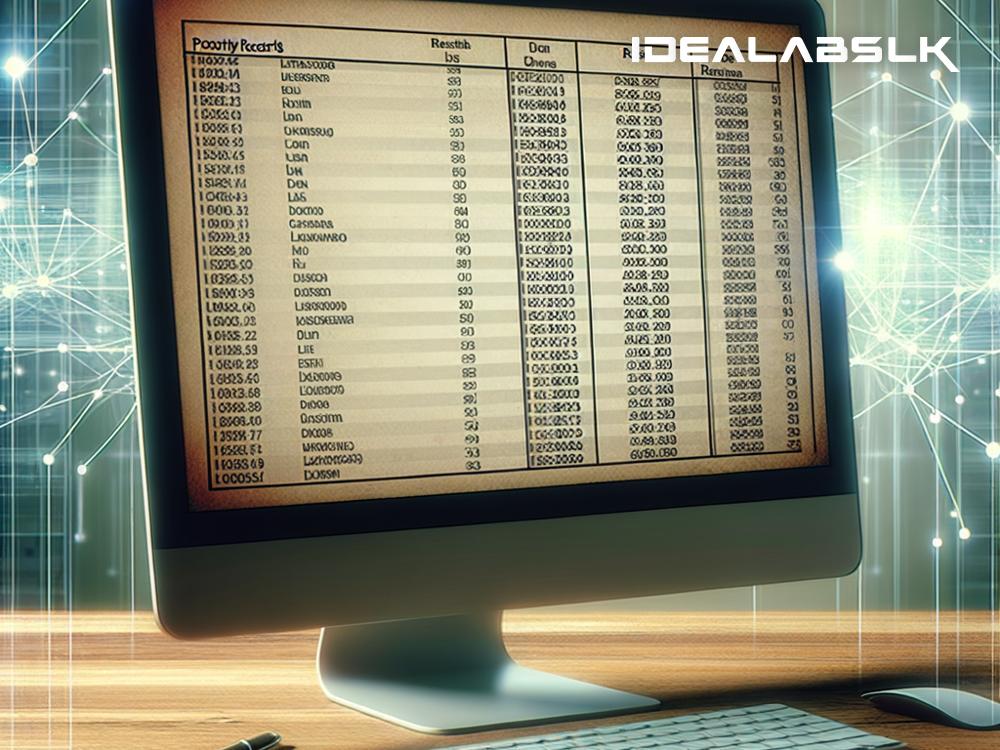Revolutionizing Property Records: How Blockchain Is Paving the Way
In recent years, the buzz around blockchain technology has grown louder, especially in the financial sector. However, beyond the realm of cryptocurrencies, blockchain presents a plethora of opportunities across various fields, one of which is real estate. Specifically, blockchain holds the key to transforming how property records are managed, stored, and accessed. But, what does this actually mean for you and me? Let's break it down into simple English.
First off, it's crucial to understand what blockchain is. Imagine a digital ledger, kind of like a notebook, which is accessible by numerous people at once. Instead of being in one place, this ledger is distributed across a network, making it incredibly secure and nearly impossible to tamper with. Each 'page' in this ledger is linked to the previous one, forming a chain - hence the term, 'blockchain'. This technology is celebrated for its transparency, security, and efficiency.
Now, let's apply this concept to property records. Traditionally, these records have been a labyrinth of paperwork, prone to human error, fraud, and inefficiency. They're stored in local government offices, requiring physical presence for access and verification. What if we could digitize and streamline this process, making it more secure and accessible? This is where blockchain steps in.
Transforming Property Records with Blockchain
1. Enhanced Security
Security is a paramount concern when it comes to legal documents like property records. The decentralized nature of blockchain means that records are not stored in a single location but across numerous nodes (computers) in the network. This makes it extremely difficult for anyone to alter records unlawfully. Every transaction or update creates a new 'block' in the chain, providing a transparent and unchangeable history of transactions. In simple terms, it's like having a secure digital paper trail for every property that can't be falsified.
2. Improved Efficiency
Real estate transactions are notorious for their sluggish pace, largely due to the cumbersome process of verifying property records. Blockchain can significantly speed up this process. Since records on the blockchain can be accessed instantly from anywhere, the need for physical document handling and verification is eliminated. This not only speeds up transactions but also reduces the labor and costs associated with record-keeping.
3. Increased Transparency
Blockchain's open ledger means that all parties involved (buyers, sellers, lawyers, and government agencies) can view transaction histories. This degree of transparency builds trust among parties and helps prevent fraud. It ensures that everyone is on the same page, literally and figuratively, by providing a clear, tamper-proof history of property ownership and transactions.
4. Democratizing Access
In many countries, access to property records is challenging, creating a barrier for ordinary people who wish to buy or sell property. Blockchain can democratize access to these records, making it easier for everyone to participate in the real estate market. This is especially beneficial in developing countries, where land disputes are common, and proof of ownership can be life-changing.
The Way Forward
Several countries and states are already experimenting with blockchain for property records. For instance, Sweden’s land registry authority has tested a blockchain-based system for recording property transactions. Similarly, Georgia has piloted a program to register land titles using blockchain, significantly reducing fraud and improving the process's efficiency.
The transition to blockchain-based property records won’t happen overnight. It requires substantial investment, technological infrastructure, and a shift in mindset from traditional methods. However, the potential benefits are undeniable. As blockchain technology continues to mature and more stakeholders recognize its advantages, it's likely that we'll see a gradual but significant transformation in how property records are managed globally.
In conclusion, utilizing blockchain to digitize property records could revolutionize real estate transactions, making them more secure, efficient, and transparent. It represents a significant leap forward in how we manage one of our most precious assets - property. For buyers, sellers, and governments, it promises a future where real estate transactions are smoother, faster, and more trustworthy. So, the next time you hear about blockchain, remember it's not just about digital currencies; it's a technology with the potential to change our world in profound ways, starting with how we handle property records.

